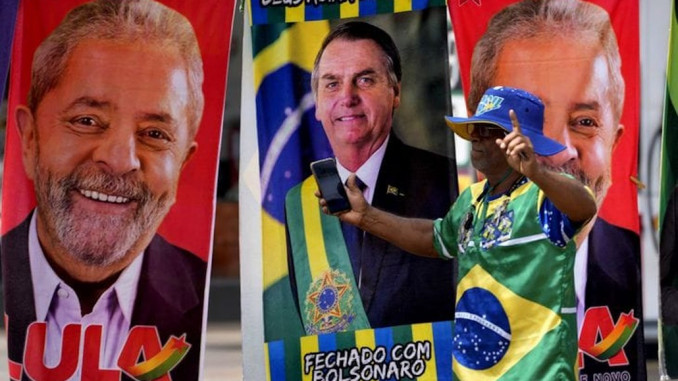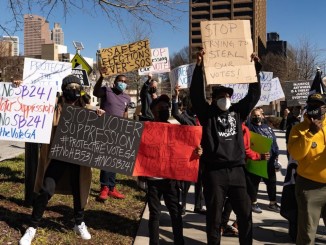
This is a translation of an article that appeared in Prensa Obrera on October 30, 2022, the website of the Trotskyist Party, Partido Obrero of Argentina, (Workers’ Party).
The final data (99.99% of the polling stations counted) show that Lula da Silva won the election by 50.90% of the votes against 49.10% for Bolsonaro, a meager 1.80-point difference, much smaller than what the pollsters had predicted.
But, while Lula’s votes increased by almost 2 million compared to the first round, Bolsonaro reduced the difference between them, and increased his votes by about 6 million. In addition, the Bolsonaro candidate won with 55% of the votes against the PT (Partido dos Trabalhadores or Workers’ Party–Lula’s party) candidate for the strategic governorship of Sao Paulo.
There are two central factors to consider. The first one is the policy of social demobilization and adaptation to the right wing that Lula engaged in during this past month. Simone Tebet, who came in third in the first round with 4.16% of the votes, and Ciro Gomez, who came in fourth with 3.04% of the votes, who both gave their support to the PT, contributed almost nothing to Lula’s overall votes. They only served to put more pressure on the PT’s campaign for a policy of appeasement with the capitalist class. The debates between the candidates were characterized by insults but the demands of the exploited population were conspicuously absent while Lula insisted on giving reassuring signals to the national and international establishment. Under that pressure, Lula raised a battle cry against abortion rights.
This was exploited by Bolsonaro who launched a series of demagogic proposals with social content. He announced an increase in the minimum wage as of January 1 and his commitment that it would not fall below inflation, along with a package of other measures (housing plan, additional increase in subsidies). Meanwhile, Lula devoted himself to pontificating on the struggle between love and hate and the virtues of democratic institutions.
In the last few days, Brazilian and imperialist big capital became more active in support of Lula. The Economist, the prestigious imperialist magazine, spoke of the advantages of Lula to preserve the institutions of the State in the face of Bolsonaro’s Trumpist adventurism. The NATO powers expressed their preference for the PT leader because he could offer more guarantees at a time when war has come to dominate the world scene, while Bolsonaro has been more unpredictable.
But unlike the previous election in 2018, this time there was no popular mobilization against Bolsonaro because any mobilization was blocked by Lula’s policy of containment and his admonitions to “not fall for provocations.” While in 2018 The “Ele Nao” movement brought tens of thousands of women into the streets, this time there was no such thing, and that’s no surprise after Lula’s condemnation of abortion and the nods he gave to the reactionary clergy.
Clarín’s special envoy covering the elections in Brazil wrote on Oct. 29 that the socio-economic situation will worsen and either “Lula or Bolsonaro will have to choose where the scalpel will go. The surgery (of austerity) is inevitable and so are the political costs.” For this analyst, Lula “has a greater ability to carry out this austerity due to the roots he has maintained with the most vulnerable sectors.”
That is why big capital has given him its support. The majority of the big bourgeoisie and world imperialism have opted to choose a “popular front” policy with Lula.
Faced with this scenario, the challenge of the workers and the left in Brazil is to defend the independence of the working class with respect to the Lula-Alckmin government, to organize the struggle against the severe austerity that is coming and to recover the gains taken away (labor and pension reform, etc.) in the Temer-Bolsonaro period. The fact that the PT will be a minority in Congress as well as the governorships won by Bolsonaro will be used as justifications by the new government to make a pact with the right wing and strangle any popular demands. Lula will try to stop any independent struggle with the same old refrain, that fascism is on the rise and has not yet been eliminated. But crushing the fascist reaction has to go hand in hand with the triumphant struggle of the workers for their demands.
In the immediate future, the Brazilian bourgeoisie will take advantage of the close electoral result to box Lula in and make demands as to the course of the new government, the composition of the cabinet, and in most importantly, who will occupy the strategic Ministry of Economy.




